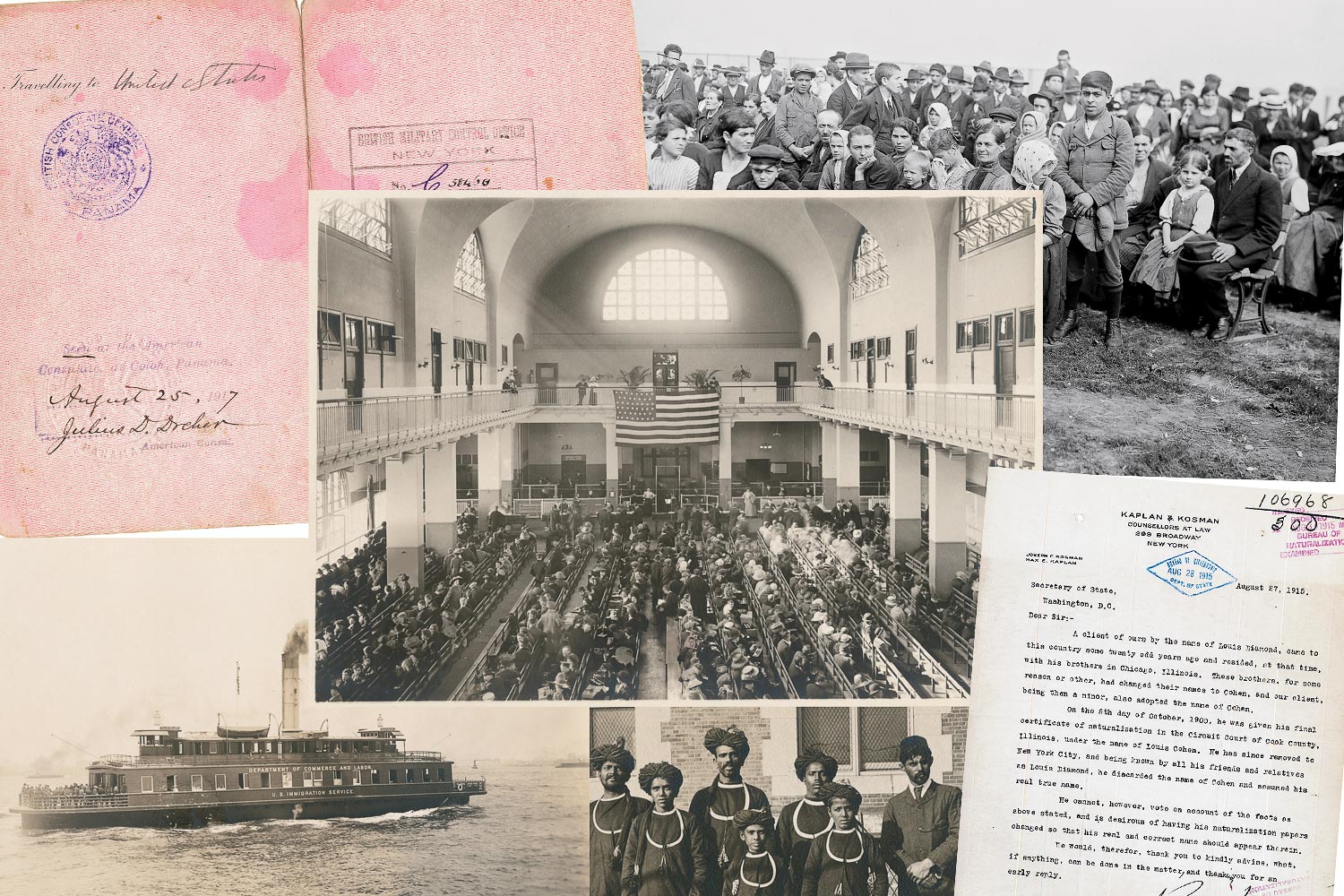Early last year, as anti-immigrant rhetoric intensified during the presidential campaign, William Massolia, the Griffin Theatre Company’s artistic director, thought of his own family’s past. All four of his grandparents came from Italy speaking very little English.
Massolia started sleuthing. He dug up his paternal grandparents’ marriage certificate and his paternal grandfather’s World War I draft card. And he learned something no one in his family knew: His father’s father had never become a U.S. citizen. “When you find out your grandparent was an illegal alien, you start to think about what that means,” Massolia says.

Struck by that discovery and the growing hostility to foreigners, Massolia decided to write a play that traces the history of immigration in this country. In to America, premiering March 18 at the Den Theatre, presents the stories of immigrants, from colonial America to the present day, told mostly in their own words. Massolia has had success with personal-narrative theater before: His play Letters Home, in which actors read from letters written by U.S. soldiers in the Middle East, has been touring nationally since its 2007 debut. “Initially, I thought In to America would just be a reminder for audiences of all of our heritages,” Massolia says. “After the election was over, I thought, It’s more important than that. It’s something people need to see.”
Massolia culled first-person accounts from dozens of publications, including a collection of Ellis Island interviews. “There are a lot of books about famous Americans who were immigrants, like Andrew Carnegie, but I wanted ordinary people,” Massolia says. In the play, the tales unfold during the American Revolution, the gold rush, the Civil War. “At any major point in American history, immigrants played a role. People forget that.”
While In to America includes unwilling immigrants—several characters are slaves—Massolia finds an otherwise common theme. “For the past 400 years, people have come here to try and find a better way of life for themselves and their children,” he says. “They are all still coming here for the same reasons.”
One character, an Italian newcomer in the early 20th century, says, “I came to America because I heard the streets were paved with gold. When I got here, I found out three things. First, the streets weren’t paved with gold. Second, they weren’t paved at all. Third, I was expected to pave them.” In to America also considers movement within the country—the Great Migration. John H. Johnson tells of the harrowing train journey he took as a teen in 1933 to get from Arkansas to Chicago, where he later founded Johnson Publishing Company. The play also celebrates small moments like when one character, Iranian-born author Firoozeh Dumas, talks about the first time she cast her vote as a U.S. citizen in the 1980s.
While Massolia says he didn’t want to make bigotry the central focus, the play doesn’t shy away from it. “There has been prejudice against immigrant groups since colonial times.” He says his father used to tell him of growing up in southern Illinois amid virulent anti-immigrant sentiment. He points to the 1882 law that banned Chinese immigrants—and didn’t get repealed for 60 years. “So the rhetoric that Donald Trump has been saying about Muslim Americans—well, we did that before, and we learned nothing from it.” The play’s director, Dorothy Milne, echoes that notion: “It was ridiculous and tragic then, and it’s ridiculous and tragic now.”
After In to America closes, Griffin Theatre will continue its season-long exploration of the immigrant experience—it began with Winterset, a story of two Italian immigrants who were executed in the 1920s—with a newly orchestrated version of Ragtime, the lauded musical about racial and ethnic strife in the early 20th century.
GO:In to America runs March 18 to April 23 at the Den Theatre, 1333 N. Milwaukee Ave. $28 to $36. griffintheatre.com



